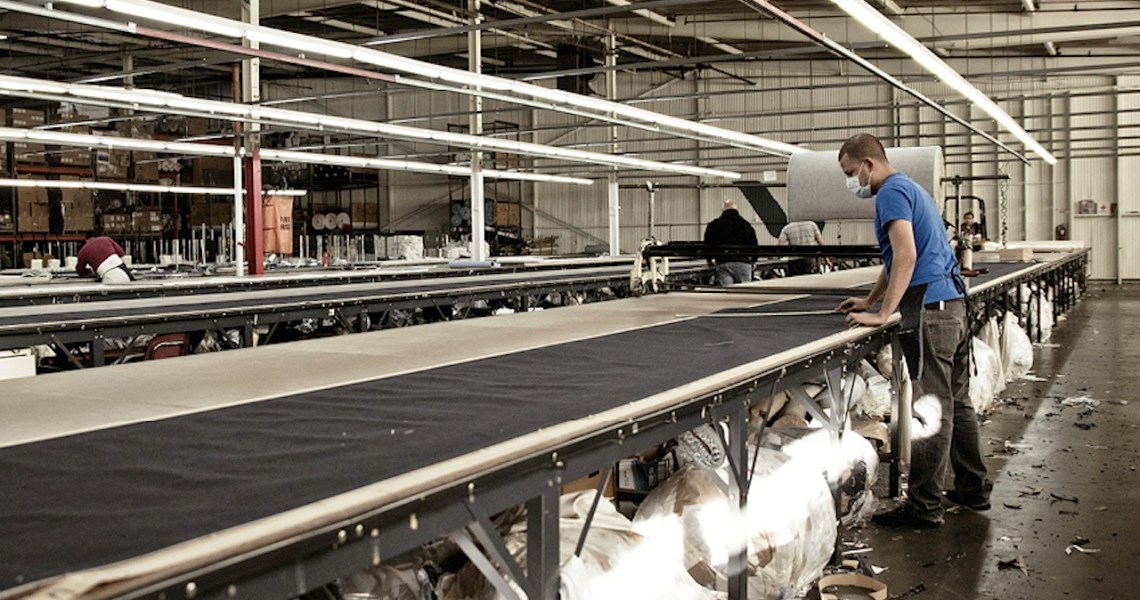Legislation adoption in the fashion industry has been slow. But the Fashion Sustainability and Social Accountability Act — or the Fashion Act, for short — could be one of the first to regulate the industry.
Even amid widespread calls for more transparency in supply chains and legislation, the fashion industry has largely gone unregulated. The existence of sustainability programs like Science Based Targets, the HIGG MSI, the Textile Exchange Preferred Fibers Index and the GFA CEO Agenda are an indication that, even within the industry, people want to understand their impact and do better.
Carrie Ellen Phillips, founding partner at consulting agency BPCM, said, “These are helpful and important tools, but the industry is still self-regulated, meaning that companies can set their own standards. As the fashion industry accounts for somewhere between 6-8% of the global carbon footprint, that just won’t get us where we need to get fast enough.” With news of damaging labor practices, Xinjiang cotton smuggling and escalated greenwashing, the need for a universal standard and for brands to take fiscal responsibility is necessary.
The bill would require global apparel and footwear companies operating in New York to set binding targets to reduce their environmental impacts based on mandatory reports. The reports would encompass complete supply chain mapping and environmental and social impact disclosure. Talking about the bill in a release, State Senator Alessandra Biaggi said, “As a global fashion and business capital of the world, New York State has a moral responsibility to serve as a leader in mitigating the environmental and social impact of the fashion industry.”
According to the bill, brands would have a year to comply, with those not disclosing being forced to pay as much as 2% of revenues of over $450 million. Maxine Bédat, director of the New Standard Institute, which introduced the bill, said, “What was very clear from our work is that sustainability teams always have to get budgets from their CFOs by showing that their work is somehow going to improve the bottom line. It makes it clear why we were seeing the types of sustainability initiatives we’ve been seeing within the fashion industry and how they don’t line up with measured impact reduction.” The bill has also been supported by fashion designer and sustainability advocate Stella McCartney.
If passed, the bill will apply to large brands with operations in New York that make more than $100 million in annual revenue. These would include brands under the luxury conglomerates LVMH and Kering, American companies like PVH, fast-fashion brands like H&M and Zara parent Inditex, as well as sportswear companies like Nike and Puma. Although some brands have put sustainability plans and incentives in place, individually, they lack the quality and independent auditing needed to enact industry-wide change.
The opportunity for the American fashion market
Other states like California have been active in bringing forward legislation for the fashion industry. For example, the Garment Workers Act last October guaranteed a living wage for the state’s 45,000 garment workers.
According to Bédat, Massachusetts is among a number of other states that have reached out about the Fashion Act, wanting to use it as a starting point for similar legislation in their own states. “We started diving into the details of this bill in February of last year,” said Bédat. “In thinking about a home for this legislation, it is hard to find commitment on the federal level. New York was a natural home for this legislation, because of New York’s critical role within the global [fashion] ecosystem.”
While the bill has not gained support on a federal level, if applied across a number of states, it could place the U.S. as a leader in fashion brand traceability. As companies are moving away from Chinese clothing production over human rights abuses, the legislation could add an incentive for companies to move production to America.
“If companies are legally expected to treat their workers fairly across the world, then it would spur American brands to produce closer to home where they have more control and are able to support American job growth,” Phillips said.
Kerry Bannigan, executive director of the Fashion Impact Fund charity, believes that if the new bill is passed, it will set a global example for legislation on due diligence and better supply chain practices.” Currently, there is no true accountability in place to safeguard and represent the vulnerable and marginalized populations harmed by the unsustainable practices of the fashion industry,” she said. “The same goes for the practices that deplete environmental resources.” As the number of parties within a supply chain is complex and hard to track, the responsibility of tracking every step would be difficult for brands currently running production with a number of sub-contractors.
For its part, ultra-fast fashion company Shein — which is above the bill’s revenue threshold, making a reported $10 billion in 2020 — has hired a sustainability head in December last year. It also launched a Shein Cares Fund, a multi-year, $10 million project aimed at supporting global non-profit organizations. So far, however, the company has not made any indication that it’s mapping its supply chain or that it plans to disclose impacts, even as reports of the company abusing labor rights mount up.
Brands and consumers can read the Fashion Act fact sheet here and sign the Fashion Act Coalition from the New Standard Institute here.




